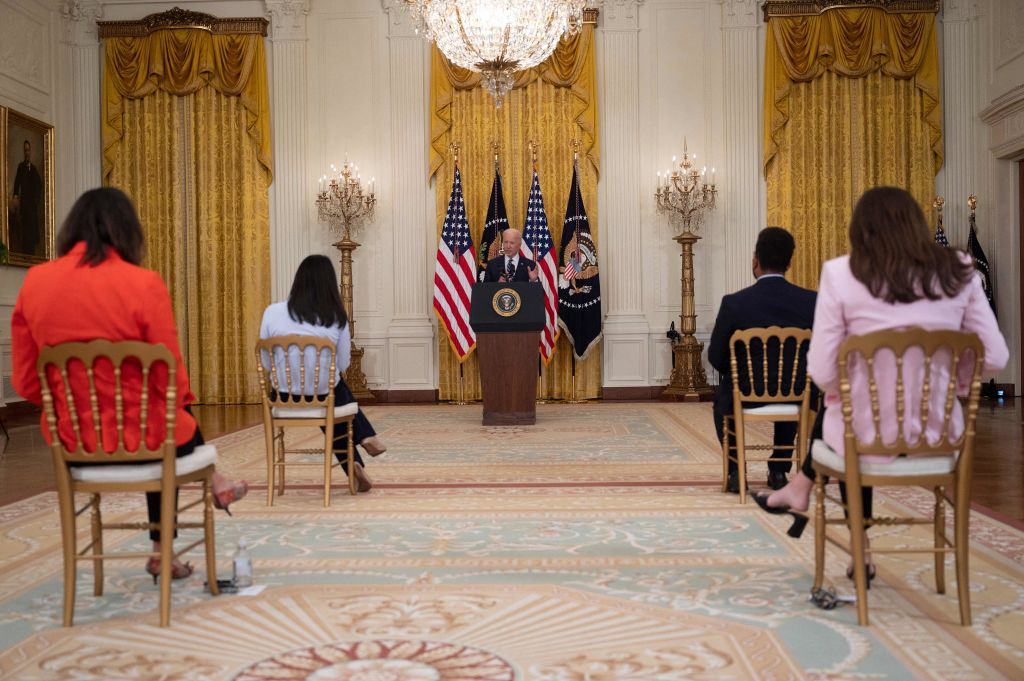The new Chinese ambassador to the United States, Qin Gang, recently met with Wendy R. Sherman, the U.S. Deputy Secretary of State. Sherman’s meeting with Qin followed her talks with Chinese Vice Foreign Minister Xie Feng in late July during which Beijing had taken an aggressive stance against Washington.
During Qin’s meeting with Sherman, the Chinese ambassador noted that the relationship between the two nations was at a crossroads. Though details of their conversation were not made public, reports suggest that Qin did raise the Taiwan issue, emphasizing it as the most important and sensitive topic between the United States and China.
According to U.S. State Department spokesperson Ned Price, Sherman reviewed issues from her meetings with Chinese officials in Tianjin last month and expressed Washington’s commitment to “continuing discussions.” Both Sherman and Qin posted a photo of their meeting on Twitter. The meeting between the two officials continued for an hour.
In an interview with Radio Free Asia, Qin said that he had a “deep and candid conversation” with Sherman and exchanged views with one another comprehensively. “Both sides recognized the importance of the China-U.S. relationship and agreed to make efforts on improving our relations… We also agreed to keep up the dialogue and further communication in the future. Both sides will address the concerns based on the principle of mutual benefit,” Qin said.
Prior to being named ambassador to the U.S., Qin served as spokesman for the Chinese foreign ministry and worked as a vice foreign minister tasked with overseeing European issues. Qin is widely known to be a “warrior wolf,” a term used to describe Chinese officials who take an aggressive stance against Western nations or against criticism of Beijing’s policies. Qin replaced Cui Tiankai who served for eight years as China’s ambassador to the United States.
Success
You are now signed up for our newsletter
Success
Check your email to complete sign up
The meeting between Qin and U.S. officials came as both sides clashed during a recent high-level United Nations Security Council meeting on maritime security chaired by the Indian Prime Minister. U.S. Secretary of State Antony Blinken highlighted issues related to the South China Sea where Beijing has been building artificial islands to expand its territorial claims in the region.
“In the South China Sea, we have seen dangerous encounters between vessels at sea and provocative actions to advance unlawful maritime claims… The United States has made clear its concerns regarding actions that intimidate and bully other states from lawfully accessing their maritime resources. And we and other countries including South China Sea claimants have protested such behavior and unlawful maritime claims in the South China Sea,” Blinken stated.
China’s Deputy Permanent Representative Dai Bing said that the Security Council was not the “right place” to discuss the South China Sea and accused the United States of “stirring up trouble out of nothing.”
Political experts believe that the coming weeks in U.S.-China relations will be crucial for the chances of a Biden-Xi summit.
“There is a need to set up the atmosphere for the summit. If there are no major incidents triggered by the US side challenging China’s sovereignty over the South China Sea and Taiwan issues, it is still hopeful that the two leaders will meet,” Zhang Tuosheng, a researcher from the China Foundation for International and Strategic Studies, said to SCMP.
Xin Qiang, a US affairs expert from Fudan University in Shanghai, believes that Beijing is both angry and disappointed as it would have hoped that Biden would ease ties between the two nations. Instead, Biden turned out to take a “harsher line… even than his predecessor Donald Trump.”

A leadership summit would provide the platform necessary to sort out the complexities in the bilateral relationship. Xin believes that the U.S. is not planning to ease relations with China.
A possible meeting place would be the G20 summit in Rome scheduled for October. Another would be the UN Climate Change conference to be held in Scotland in November.
In a write-up at Brookings, Ryan Hass, senior fellow of foreign policy at the Center for East Asia Policy Studies, John L. Thornton China Center, notes that the scale of American and Chinese interests would “induce sobriety” over time as to how the ties between the two nations are managed. Hass believes that Washington might focus on strengthening America’s long-term competitiveness vis-à-vis China rather than seeking to defeat China or collapse the Chinese regime.
“Major near-term improvements to the U.S.-China relationship are unlikely, barring an unexpected moderation in Beijing’s behavior. At the same time, the relationship is also unlikely to tip into outright hostility, barring an unforeseen dramatic event, such as a Chinese act of aggression against an American security partner,” Hass wrote.














